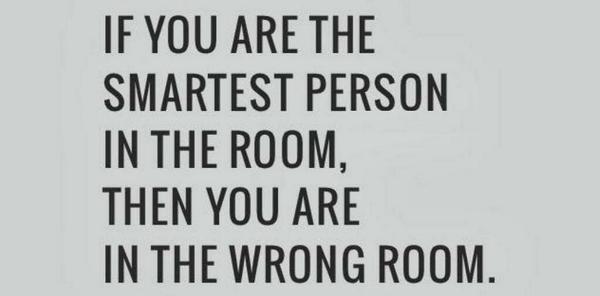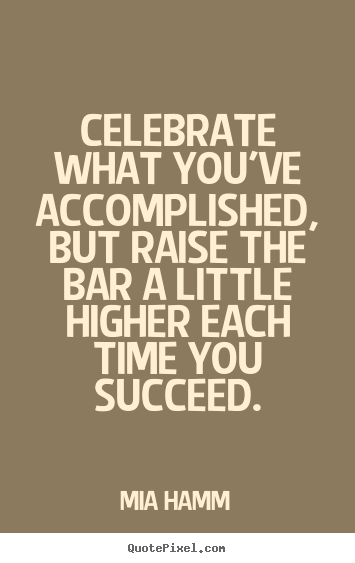Recently I had a great opportunity to be in the audience for a panel of some of the best strength and conditioning coaches in the world. When I say the best, I mean these guys have it all: PhDs, top level experience in professional sport with international athletes, national championships, plenty of published research and they are widely regarded as the “go to” guy in their specialism. For people who are involved in strength and conditioning, each one of these guys is a household name. To say this experience was a privilege was an understatement.
After reflecting on this experience I realised there were some key lessons I learnt.
1.Stay hungry
Don’t believe your own hype. Don’t be complacent. Keep learning. These guys knew their industry inside out, they knew research articles off the top of their heads. They could apply it and tell you there and then what this meant for your training and coaching. It was obvious every one of them read a lot, still considered himself a student of his craft and was dedicated to becoming the best he was capable of. When I asked why one of them did a PhD when he really didn’t need to, he responded with, “It’s an arms race. A degree used to be good enough. Then it was a masters. Now it’s a PhD.” If this guy is worried about keeping up with his competitors, then you should be too.

2. Surround yourself with smart people
Be the dumbest guy in the room. If you are the smartest, chances are you aren’t really going to learn a whole lot from those around you. Instead, get out your comfort zone and mingle with those people a bit further up the chain than you. This may be uncomfortable, it might expose the areas you aren’t up to date on. But you will have greater awareness of what you do and don’t know and what to work on.

3. Get up early
The Hebrew proverbs say “As a door turns on its hinges, so a sluggard turns on his bed.” It’s a good principle, people who invest a lot in sleeping aren’t likely to be investing a lot of time into the right things. One of the guys used to get up at 4am to get to work for the start of a 6.30am training session. Another commented how gets up at 6am and works for 2 hours before being interrupted.That’s a high level of commitment… Maybe you don’t need to be at work that early, but imagine the amount of time you could get uninterrupted to focus on developing yourself. You might dedicate this to a physical training session to set the tone for the day, or invest it in developing yourself by reading or reflecting. You could use it to decide upon your priority tasks for the day. Either way this seems like a useful practice. I’ll admit I love my sleep and will need to work on this one!

4. Practice what you preach
Each of these guys still invested in themselves physically. They all had a different area of interest, but they still trained themselves in that area. Two of them were 50-60 years old, but still looked like you wouldn’t want them running at you on a rugby pitch. They invest in their body regularly and would put most 20 year olds to shame, never mind men their own age! There’s a lot to be said for practicing what you preach. It adds a level of required respect to your coaching. There’s nothing worse than a fat personal trainer or an obese football coach preaching how important nutrition or exercise is. Set the example.

5. Read, attend, listen, watch
One of the coaches recommended that you should never think you know it all. This kind of echoes the first point, but become a student of your craft. Centuries ago the painters and sculptors interned with the maestro for about a decade before they were adequate to stand on their own two feet. In today’s world, the best coaches are readily available if you can be bothered to access them. Read books or articles. Attend seminars, conferences and lectures. Listen to other coaches via podcasts and interviews. Watch what the best do. Success leaves clues.If you’re standing still, you’re actually going backwards. One of these coaches mentioned he reads a minimum of one hour a day. Another commented 50% of his reading is in his area of interest, 50% he tries to read in other areas. Not a bad principle.

6. Own your mistakes
Every single one of these coaches could recall a direct example of mistakes they had made recently. They also advocated actually trying to make mistakes, not for the sake of it but because it shows you are operating outside of your comfort zone. One coach even suggested he deliberately tries to make 1 mistake a day to continue learning. Don’t pass the buck, be accountable, own it and use it to learn.

7. Know when to work and when to party.
We are built to work 24/7. Neither are we built to party 24/7. The balance of work to relaxation is an important one. Understand when it’s time to put your nose to the grindstone and when it’s time to unwind and go on holiday. Celebrate success at the appropriate time. We all know coaches who have burned out. Know when to fill up yourself and when to pour out into others. We are constantly investing in our athletes as coaches, make sure you have something to give them. If you aren’t taking time to unwind, relax and refresh soon you will be empty of the passion and enthusiasm required for high quality coaching.

If you enjoyed this post please like, comment below or find us on Facebook to keep up to date with more content!
Are you a grassroots youth sport coach or PE teacher who wants to improve the athleticism of your athletes?? Check out our Fundamental series athletic development programs here.

5 thoughts on “7 Lessons from the world's best coaches (Coaching series part 4)”
Really enjoyed reading this post. Some great lessons to be put into practice there.
Please check out my recent post on the lessons I learnt as a S&C intern. All the Best. Liam
Thanks Liam, glad you found it helpful. Anything you can apply straight away? I will head over and have a look!
Cheers
Owning my mistakes. 100%. As a young coach I found this the hardest step to overcome. Mainly as we are always striving to create a impression early in our careers. However, as you explained it’s through these mistakes we progress as coaches and as individuals.
Looking forward to reading more of your posts 🙂
Great stuff mate. Yes, it’s tempting to shirk the blame but if you own it you can learn from it! Tried to have a look at your blog but couldn’t get there via your avatar – feel free to post a link!
https://liamoakeshealthcoach.wordpress.com/ – that should do the trick!
Thanks again.
Comments are closed.